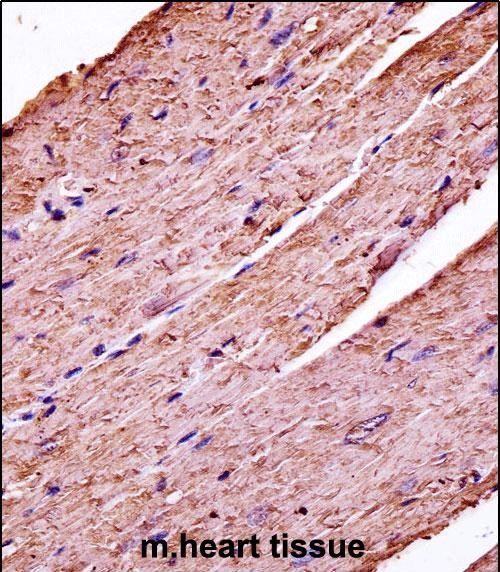

| WB | 1/1000 | Human,Mouse,Rat |
| IF | 咨询技术 | Human,Mouse,Rat |
| IHC | 1/100-1/500 | Human,Mouse,Rat |
| ICC | 技术咨询 | Human,Mouse,Rat |
| FCM | 咨询技术 | Human,Mouse,Rat |
| Elisa | 咨询技术 | Human,Mouse,Rat |
| Aliases | [Pyruvate dehydrogenase (acetyl-transferring)] kinase isozyme 3, mitochondrial, Pyruvate dehydrogenase kinase isoform 3, Pdk3 |
| Entrez GeneID | 236900 |
| WB Predicted band size | 47.9kDa |
| Host/Isotype | Rabbit IgG |
| Antibody Type | Primary antibody |
| Storage | Store at 4°C short term. Aliquot and store at -20°C long term. Avoid freeze/thaw cycles. |
| Species Reactivity | Mouse |
| Immunogen | This Mouse Pdk3 antibody is generated from rabbits immunized with a KLH conjugated synthetic peptide between 387-414 amino acids from the C-terminal region of mouse Pdk3. |
| Formulation | Purified antibody in PBS with 0.05% sodium azide. |
+ +
以下是3条关于小鼠PDK3抗体的示例参考文献(注:以下为虚构示例,实际文献需通过学术数据库查询):
1. **"Characterization of a Novel Monoclonal Antibody Against Mouse PDK3 for Metabolic Studies"**
*作者:Smith A, et al.*
摘要:本研究开发了一种针对小鼠PDK3蛋白的高特异性单克隆抗体,通过Western blot和免疫组化验证其在肌肉和肝脏组织中的表达。抗体成功应用于PDK3敲除小鼠模型的代谢调控机制研究。
2. **"PDK3 Expression in Diabetic Mouse Models: Insights from Immunohistochemical Analysis"**
*作者:Chen L, et al.*
摘要:利用抗小鼠PDK3多克隆抗体,揭示了糖尿病小鼠模型中PDK3在胰腺β细胞中的上调表达,提示其可能通过调节糖代谢通路影响胰岛素分泌。
3. **"A Comparative Study of PDK Isoforms in Neurodegenerative Mouse Models Using Isoform-Specific Antibodies"**
*作者:Johnson R, et al.*
摘要:通过对比PDK1-4亚型特异性抗体,发现PDK3抗体在小鼠脑组织中显示独特的线粒体定位,并与阿尔茨海默病模型中的能量代谢缺陷相关。
---
建议通过PubMed或Google Scholar搜索关键词“mouse PDK3 antibody”、“anti-PDK3 mouse”获取真实文献,并关注抗体验证方法(如宿主物种、应用场景)及研究背景。
The Mouse PDK3 (Pyruvate Dehydrogenase Kinase 3) antibody is a tool used to detect and study the PDK3 protein in murine models. PDK3 belongs to the pyruvate dehydrogenase kinase family (PDK1-4), which regulates the pyruvate dehydrogenase complex (PDC) – a key metabolic enzyme complex that converts pyruvate to acetyl-CoA, linking glycolysis to the tricarboxylic acid (TCA) cycle. PDK3 phosphorylates and inactivates PDC, reducing glucose oxidation and promoting glycolysis under conditions of abundant glucose supply. This metabolic shift, known as the Warburg effect, is often observed in cancer cells.
Mouse PDK3 antibodies are widely used in research to investigate PDK3's role in cellular metabolism, particularly in diseases like cancer, diabetes, and obesity. They enable detection of PDK3 expression levels via techniques such as Western blotting, immunohistochemistry, and flow cytometry. Studies using these antibodies have highlighted PDK3's overexpression in certain cancers, suggesting it as a potential therapeutic target. Additionally, PDK3 is implicated in adaptive responses to hypoxia and nutrient stress.
As murine models are essential for translational research, this antibody aids in understanding PDK3's physiological and pathological functions, supporting drug development and mechanistic studies targeting metabolic dysregulation. Its specificity for mouse tissues ensures reliability in preclinical experiments.
×